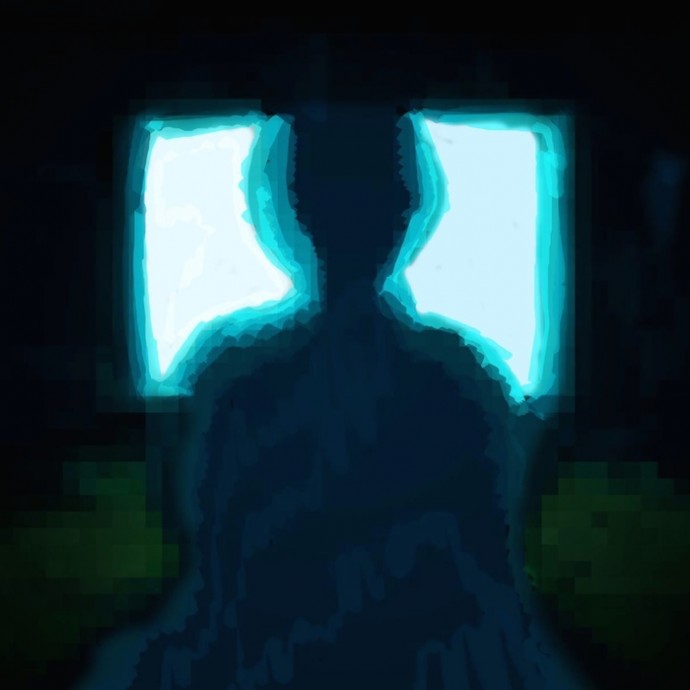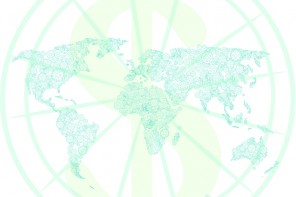He’s sitting in front of his computer, playing one of those so-called online games. For hours. Sometimes up to nine hours per day. Video games played over the Internet that allow an interactive communication that somehow creates a virtual world of its own. He sits there, solving tasks, finding friends, having fun and success. He enjoys that life. That online life. Nowadays, many younger people, especially boys, spend hours playing computer games. Nothing new. Nothing abnormal. It’s generally accepted (though not always celebrated) that youngsters play those games.
But now let’s replace the image of that teenage boy at his computer with a 51-year-old mother of three children. Where is the acceptance now? A mother sitting in front of her PC, sometimes for nine hours at a time, and forgetting everything around her. Sensa Nostra talks to a gamer mother, who explains her online and offline existences and the conflicts they’ve created.
I remember when I started gaming. Actually, I started because of my kids, back in 2005. My boys were playing Counter Strike, and I didn’t want them to get too attracted to that violence-glorifying world. Then a friend suggested World of Warcraft, a more reasonable game. That’s how I started playing it as well.
At the time, I was still with my husband, and, after we got divorced, those games became my everything. I was escaping into that parallel universe. Escaping, because I couldn’t stand reality any longer.
I remember this moment: my son standing next to me, watching me play, and asking, “Mommy? Why do they all want to talk to you? What do they want? They are all so nice to you.” And I only said, “Well, I’m a nice person.” It felt so good. So fucking good. Getting all that attention. Being appreciated. Being wanted. Because, yeah, I didn’t have all this stuff in my life. There, I was just under control. And that’s all.
My online life was simply better. Happier. Easier. I had more fun. Success. People wanted to get to know me. I had friends, social contacts. Most of them were younger than me, but already adults. I mean, I had conversations. Not childlike chats—I love my children, but it’s not enough for a mother to only talk to her kids. She also needs other contacts. And those were honest. Intense. Not those superficial and fleeting acquaintances that I was used to in my offline world.
People in video games are honest, maybe because they can hide themselves behind an avatar. I don’t know why, but they are, and that’s what I needed. Of course, there were also some I didn’t want to hang out with, but you know what? There is that function called ‘ignoring’ or ‘blocking’, and the person is gone. In real life, it’s not that easy.
Offline, I experienced so much rejection. My husband was controlling me, made me feel weak. He didn’t care for us, but he wanted to remain in control of everything. He didn’t want to take part in raising our children. I always had to fight, to convince him to take part in our lives. And when my children and I finally did do something, did go out, did have fun, he manipulated us, calling four, five, or even more times.
First, I thought he was worried (how lovely). After a while, I realized he was just trying control us—where, with whom, and what we were doing. And my friends, they were bothered by his calls. That’s why they stopped meeting me. I didn’t notice that. I should have, though.
Consequently, I lost everyone else in my life . All of them. And I was tired, tired of fighting against him. So I stayed at home. In that cage. He would close all the windows. Lock all the doors. It was sick. It made me sick. Therefore, I started escaping. Video games helped me, and still make me, feel good. I can design my online life. I can make decisions, have power. They give me the strength to stand reality because life is a never ending fight.
After I left my husband, that struggle continued. I searched for jobs. Nobody wanted to hire a mother of three children who hasn’t worked for fifteen years. Eventually, I found an internship, and enjoyed it. Had fun. Met people. Until I got replaced with a younger, better trained employee. Not good enough.
My son struggled in school. He started drinking and taking drugs—didn’t follow my rules. Now I know what was missing in his life: a man. You know, when a man sets up rules or raises his voice, it works. When a woman does it, people think, “What a hysterical bitch!” My children’s school. The job centre. All those institutions gave me the feeling I was worthless. I was a bad mother, a nobody. But online, my existence meant something.
To be honest, I was hiding it, my virtual world. I was ashamed of it. Wherever you go, whomever you tell about it, you can see it in their eyes: they judge you. They don’t understand you. They don’t accept that grown-ups are gaming. Society thinks it’s fine that teenagers play video games, but an adult? No. Unacceptable. A mother? Hell no. Adults have to behave in a certain way. We are meant to be like gears in a machine, to be valuable to society, to work, to organize, to function. And playing computer games means that you don’t function correctly.
Supposedly, a mother must to dedicate her existence to her children. Not one free minute for her own. And if something’s not well, for example: if her son has difficulties in school, then Mom is the reason for that. And if people figure out that Mommy plays online games, then she gets blamed. But maybe she’s only able to be a mother because she can recover while playing those games, because they give her a great feeling, give her a way to experience success and to revitalize. Well, people don’t want to see that. Their attitude makes our society sick. It is poisoning us. If you ask others, those games have made me ‘poor.’ They were the reason that I lost my social contacts, that I lost touch with reality. If you ask me, they have enriched my life. You should be able to do something that makes you happy. And I’m happy when I’m gaming. So why can’t I? I say: live and let live.
But at some point, well, my children started complaining, “Oh, what a surprise, you are sitting at the computer again.” It hurt. We used to play together—it was our family excursion into a virtual world. We had fun. There weren’t any financial worries. Yet, as soon as they had developed their own interests, they started judging me. They said that I wasn’t approachable when I was gaming—that they couldn’t reach out to me. Well, I think I also wouldn’t have been approachable—say, mentally present—if I hadn’t been playing. But initially, I felt offended.
I needed some time to process what they were telling me. Ultimately, it hit me: they were right. That moment, realizing I neglected my kids, I was so overwhelmed. So shocked. So disappointed in myself. I love my children. How could I do this? It was a wake-up call.
Accordingly, I tried to change. It was a long struggle. Playing isn’t wrong, but playing for nine hours is. I had a guilty conscience. Being responsible for three kids, you can’t spend nine hours at the PC without causing any problems in the real world. Online, if you are ‘game over,’ there are no true consequences. You can start a new round. But in reality, failures often have devastating effects. For that reason, I had to change. And I did.
Now, after reducing my gaming time to two hours per day (or sometimes, not playing at all), I’m back to a normal daily routine. My children aren’t complaining anymore. My daughter even said she’s proud of me. I’m also meeting people outside my online universe. Yet, I still play—to calm my thoughts. The thoughts that I’m a failure. It helps. And you should hold on to something that soothes you.
It’s a step-by-step come-back to reality. Totally escaping into ‘virtuality?’ No, I couldn’t do that. There are still too many things missing in that life. You can’t truly feel a hug and the warmth of another person, the scent of a flower. Turning the computer off, it’s just you again, and there’s nobody you can share those game experiences with—the ones you were so proud of. Nobody would understand you. After a while, it’s just like the fleeting moment of happiness after waking up, the drowsiness before understanding it was simply a dream. It never happened. And you are left with the wish for real happiness. So maybe, it’s time for me to make it come true.







